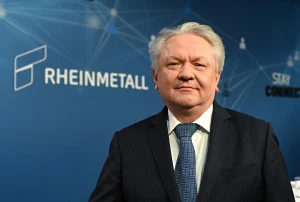
Ukraine caught in middle of Poland’s election campaign – Polish politician Mirosław Czech
Politician Mirosław Czech noted that Polish political forces are fighting for the rural electorate and farmers, so the issue of Ukrainian agricultural imports is being used in the election campaign
He told about this on the Espreso TV channel.
"There is an excess of unnecessary words, statements and gestures in Ukrainian-Polish relations. The relations between Poland and Ukraine are stable, good-neighbourly and friendly, and are not in crisis. In particular, nothing has changed in this regard since February 24. The latest outbreak of emotions, harsh statements and gestures is due to a number of factors, with the very tough and active election campaign in Poland coming first," the Polish politician stressed.
Miroslaw Czech noted that what is now at stake in Poland is who will hold power after the parliamentary elections to be held in October this year.
"There is an uncompromising, harsh and tough election campaign. Unfortunately, relations with Ukraine, in particular, the issue of grain and Ukrainian agricultural products imported to the EU duty-free, are also at stake. This year, an embargo was imposed on four types of grain to five EU countries. This embargo is due to expire on 15 September, but there are active discussions about extending it. And this is the peak of the election campaign. Every political force in Poland needs the support of the rural electorate and farmers, so they are trying to put themselves in the position of defending this category of voters. That's why we hear tough statements from both the government and the opposition," explained Czech.
Ban on imports of agricultural products from Ukraine
On February 2, Polish farmers began blocking checkpoints on the border with Ukraine. They were outraged that the uncontrolled inflow of Ukrainian grain to Poland had caused prices for their products to plummet. Local farmers argue that Ukrainian grain should have been transported through Poland only to ports, but it ended up on the Polish market.
On February 16 and 17, Polish farmers resumed protests on the border with Ukraine.
On March 29, Polish Prime Minister Morawiecki said that Poland promised to introduce rules that would limit the inflow of Ukrainian grain to the country, explaining that it could destabilize the import market.
On April 7, Ukraine agreed to stop exporting grain to Poland, and on April 15, the country approved a ban on the import of Ukrainian grain and other food products to Poland.
Later, оn April 15, Poland approved a ban on the import of Ukrainian grain and other food products to Poland. The government emphasized that this decision does not change the country's position on support and friendship with Ukraine.
In Romania, farmers are demanding a ban on grain imports and transit from Ukraine, threatening a nationwide protest.
On April 16, media reported that Bulgaria was also considering refusing to import Ukrainian grain, after Hungary and Poland had already made this decision.
On the same day, a spokesman for the European Commission said that unilateral actions by EU member states on trade were unacceptable.
On April 18, it became known that Poland would receive EUR 30 million in aid from the EU amid the crisis with Ukrainian grain.
After that, Warsaw decided to unblock the transit of Ukrainian agricultural products to European ports on April 21.
On April 17, Slovakia became the third EU country to ban imports of Ukrainian grain and other agricultural products.
On April 19, Hungary banned the import of 25 types of agricultural products from Ukraine. The ban on the import of grain, flour, honey, oil and meat from Ukraine to Hungary will last until June 30 this year.
On April 29, the European Commission agreed with Bulgaria, Hungary, Poland, Romania, and Slovakia on the transit of food produced in Ukraine through their territory.
On May 12, Poland, Bulgaria, Romania, Slovakia, and Hungary called on the European Commission to extend the embargo on agricultural products from Ukraine until the end of the year.
In late May, it was reported that four EU countries would insist on extending grain import restrictions from Ukraine until October. At the same time, Hungary wants to extend the restrictions until 2024.
Vitaliy Kulyk, Director of the Center for Researching Civil Society Problems, believes that Ukraine is responsible for the oversaturation of the Eastern European market with agricultural products.
On July 19, Prime Minister Mateusz Morawiecki said that Poland and 4 other EU countries would not open the border with Ukraine for grain products after September 15, if the European Commission's moratorium on Ukrainian grain imports expires then.
On August 3, Polish Agriculture Minister Robert Telus said that the country would close the border to Ukrainian grain after September 15.
- News











































